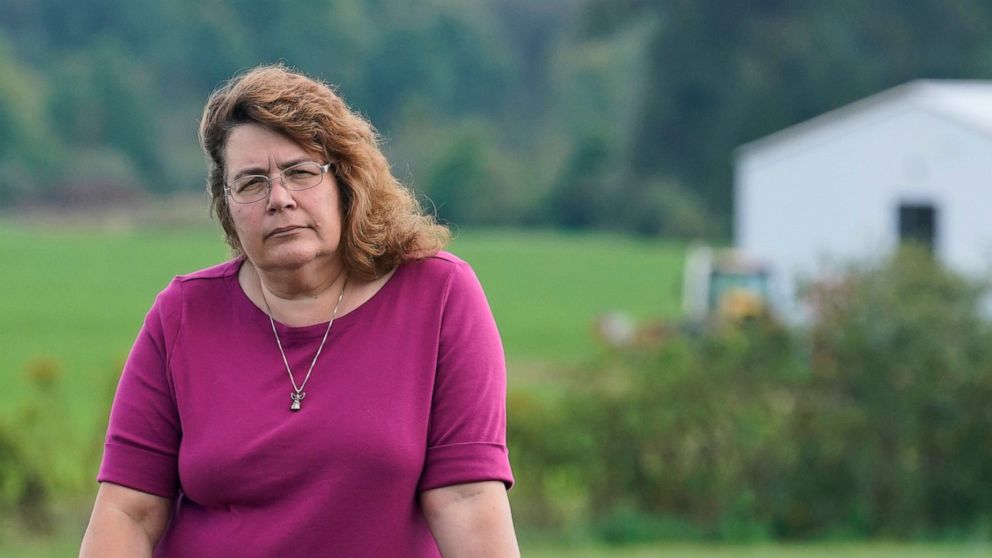First Nations lay claim to all critical minerals and rare earth elements in Saskatchewan
First Nations are laying claim to all critical minerals and rare earth elements in Saskatchewan in light of the province announcing its new critical mineral strategy on Monday.
Saskatchewan has 23 of 31 critical minerals on the Canadian Critical Minerals List. The government’s strategy aims to increase Saskatchewan’s share of Canadian mineral exploration spending to 15 per cent and double critical minerals being produced by 2030. It also intends to grow Saskatchewan’s production of potash, uranium and helium in addition to establishing the province as a rare earth mineral hub.
The Federation of Sovereign Indigenous Nations (FSIN), which represents 73 First Nations in Saskatchewan, says the critical mineral strategy infringes on inherent and treaty rights.
“At treaty, we agreed for the settlers — in order to have agriculture — to share a plough deep,” Heather Bear, the federation’s vice-chief Heather Bear said.
“The minerals were never on the table.”

Disputes over depth of plough provision
Dwight Newman, a Canadian Research Chair in Indigenous Rights in Constitutional and International Law, said there is an unresolved dispute between the provincial government and First Nations over whether land below the depth of a plough was shared through Treaties 4 and 6.
Newman said “depth of plough” isn’t in the written text of the Treaties 4 and 6, but First Nations say they never ever agreed to share land below the depth of a plough.
Bear said the Crown has ignored oral agreements made during treaty negotiations.
“There is something called the ‘spirit and intent‘ of the treaty and that’s legally binding as well,” Bear said. “We know for a fact, our elders and knowledge keepers have made it clear, that when the treaties were negotiated they had agreed to a plough deep.
“That’s what the Crown had promised. Those were promises and they’re sacred.”
That would mean First Nations, not the government or private industries, are entitled to minerals and other resources well below the depth of plough — such as oil, gas and minerals.
“There’s a pretty wide difference in the viewpoints of the government and the First Nations on that issue, between all of the minerals having been transferred under the treaties and none of them,” Newman said.
“It’s a pretty stark difference and a very large legal dispute if that were to happen in full.”

Newman believes First Nations could face challenges if they submit a claim for full ownership of the minerals in court.
“There are some matters that have never really been resolved in the courts,” Newman said. “I think part of what [FSIN] is trying to do is put a large claim forward to try to get a negotiation on some sort of resource revenue sharing.”
What is resource revenue sharing?
Several provinces have resource revenue sharing agreements, under which they share a percentage of the economic benefits that come from resource extraction on treaty territory with some First Nations.
Some 35 First Nation communities in Ontario currently have resource sharing agreements with the province. They receive 45 per cent of annual revenue from contributing forest management units, 40 per cent of the annual mining tax and royalties and 45 per cent from future mines covered by the agreements, according to the province’s website.
Bear would like to see similar agreements established between Saskatchewan’s provincial government and the 73 First Nations that make up FSIN.
She said First Nations aren’t against resource extraction as long as it’s done responsibly, but they need to reap some economic benefits that come from it.
“We need to amend the constitution to be reflective of spirit and intent to share the land,” Bear said.
“First and foremost it’s about resource revenue sharing, sharing the wealth and the bounty that comes from our land.”
Bear added that the concept of revenue sharing is not new to Saskatchewan, pointing to the province’s gaming framework agreement, under which First Nation-owned casinos share revenues with the province.
“When you look at the disparities that we face, we need substantial resources,” Bear said.
“Federal and provincial policies aren’t fixing that.”
Saskatchewan’s Premier Scott Moe said Thursday that resource revenue is shared with everyone in the province. He added that the province engages Indigenous-owned businesses and has Indigenous people working in resource extraction industries.
More consultation is needed: FSIN
The 2023-24 provincial budget includes boosting the mining exploration incentive from $750,000 to $4 million and increasing the mining exploration tax credit from 10 to 30 per cent to entice investment and mining in Saskatchewan.
The FSIN added that the province didn’t properly consult First Nations about the Critical Mineral Strategy.
“Before Saskatchewan solicits investments from around the globe, they need to ensure that they consult with First Nations to guarantee Inherent and Treaty Rights are not being infringed on,” Bear said.

The province said it is committed to fulfilling the Crown’s legal duty to consult and accommodate First Nations, as articulated in the Consultation Policy Framework.
“As projects move forward, duty to consult is often triggered on specific projects,” Jim Reiter, Saskatchewan’s minister of energy and resources, said at the announcement on Monday.
“Nothing has changed in that regard.”
The province said protecting treaty and aboriginal rights, advancing reconciliation and promoting certainty for investment in the province benefits all Saskatchewan residents.





